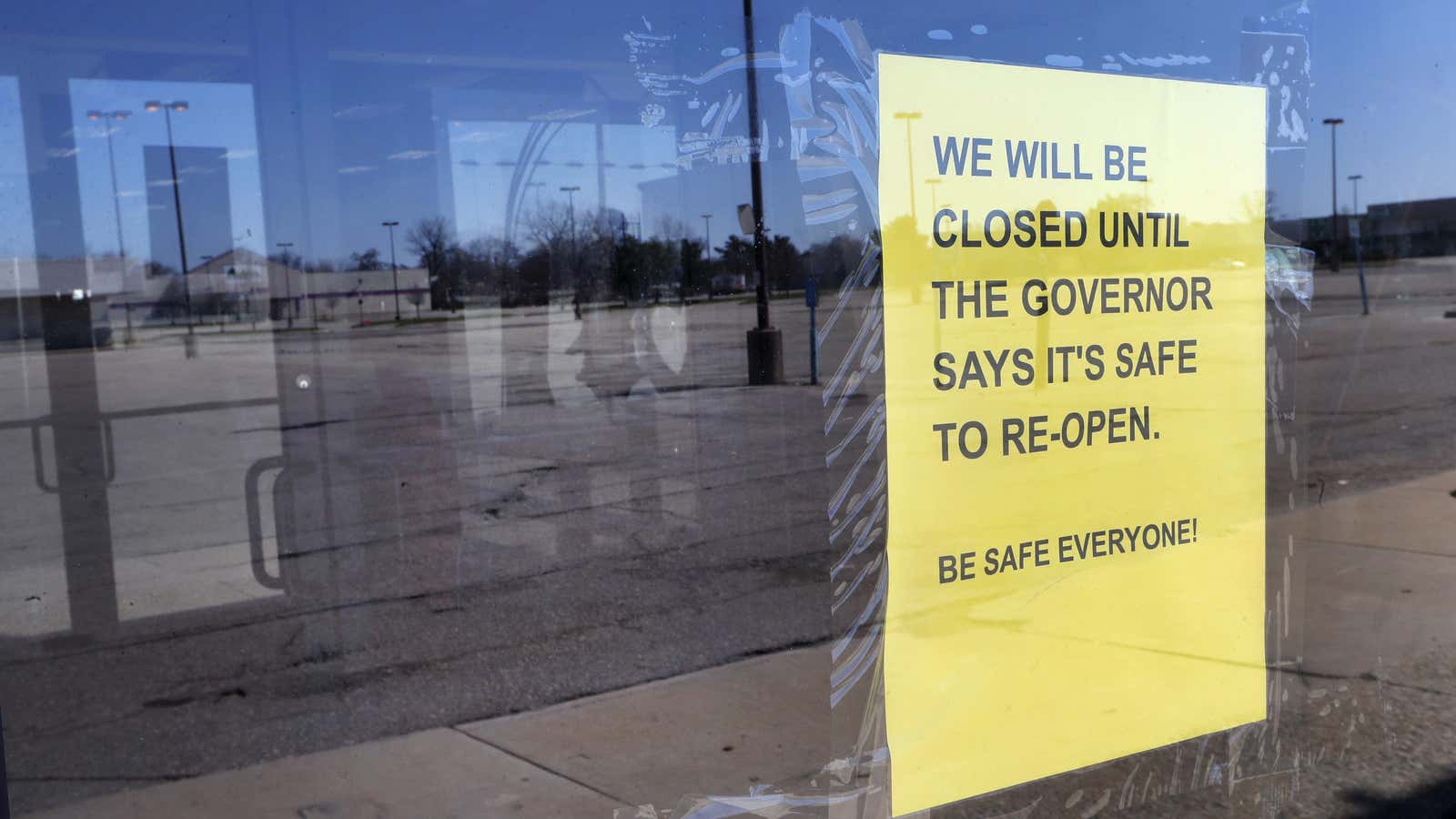Last week, over 6.6 million Americans applied for unemployment benefits. This brings the total of initial unemployment claims to about 10 million since several states shut down all nonessential business.
The number of unemployed people is expected to jump again next week, likely pushing the actual unemployment rate (estimated on the basis of the claims) above 10%—possibly surpassing that of the 2008 recession.
Such a high unemployment rate would be a serious worry in any country, but in the US it’s made all the more concerning by the fact that about half of Americans get their insurance through their employers.
And so, in the middle of the pandemic, millions of Americans didn’t just lose their job—they lost their health insurance, too. This means they might face crippling debt should they be admitted in the hospital for Covid-19, and might even forgo essential diagnostic tests for fear of the financial consequences.
Despite the circumstances, Donald Trump has refused to reopen the Obamacare enrollment period, which would allow people recently laid off to sign up for subsidized health coverage, as well as others who may qualify. This leaves people with very limited, non-ideal options—which are, nonetheless, better than nothing.
Obamacare (whether Trump likes it or not)
Losing coverage, including because of job loss, is one of the life events that qualify people to enroll in the health insurance programs available on the Affordable Care Act marketplace. The cost will vary depending on where the person applies, and whether they have dependents.
Plans on the marketplace are often as expensive as ones offered privately—in New York, the minimum monthly premium is more than $400—but they qualify for Obamacare subsidies, available for people living in households with income below four times the federal poverty line.
Cobra
People who wish—and can afford—to keep their employer-provided health insurance can do so by paying for it, through Cobra (Consolidated Omnibus Budget Reconciliation Act), provided their employer offers the option (companies with 20 or more full-time employees are usually mandated to do so).
Through Cobra, people pay both their share of the insurance premium and the share that was previously paid by their employer—plus a 2% service fee. This, too, isn’t cheap: Typically employers cover the larger part of a health insurance policy, so someone used to paying, say, $120 a month may see that top $500 under Cobra.
Note that if an employer goes out of business or its size shrinks to a point where it no longer needs to offer health insurance for its employees, Cobra coverage may become unavailable.
Medicaid & CHIP (Children Health Insurance Program)
In most states, adults under 64 whose income is below 138% of the federal poverty line are eligible for Medicaid (in Washington, DC the threshold is 215%). But this is under an expansion of Medicaid that not all states opted into.
Alabama, Florida, Georgia, Kansas, Mississippi, Missouri, North Carolina, Oklahoma, South Carolina, South Dakota, Tennessee, Texas, Wisconsin, and Wyoming have not expanded Medicaid, and they do not offer Medicaid to individuals, unless they have special conditions (disability, pregnancy, etc.) or dependent children—although thresholds apply there, too. In Nebraska, the Medicaid expansion will go into effect at the end of the year.
Meanwhile children who used to be on their parents’ health insurance plan and have lost their coverage may be eligible for CHIP (Children’s Health Insurance Program), a low-cost option available for children whose family’s income is above the Medicaid threshold.
